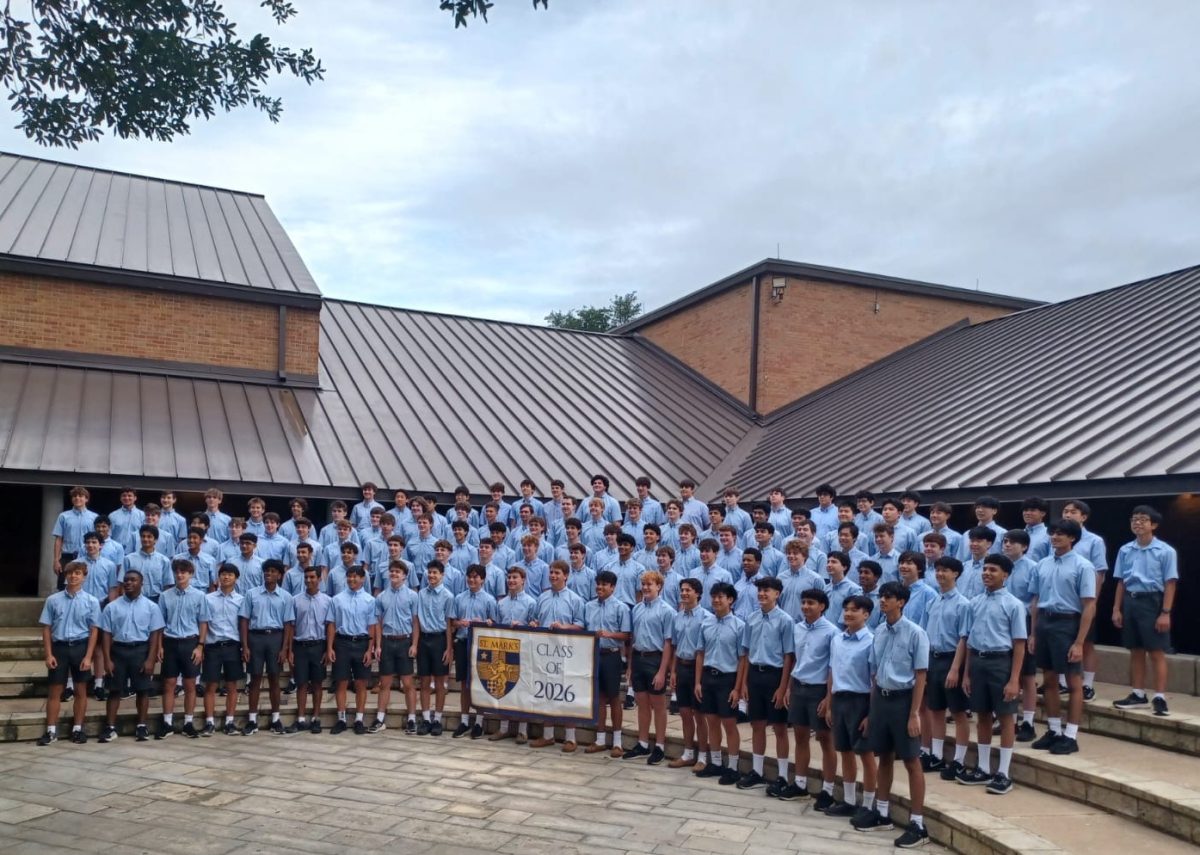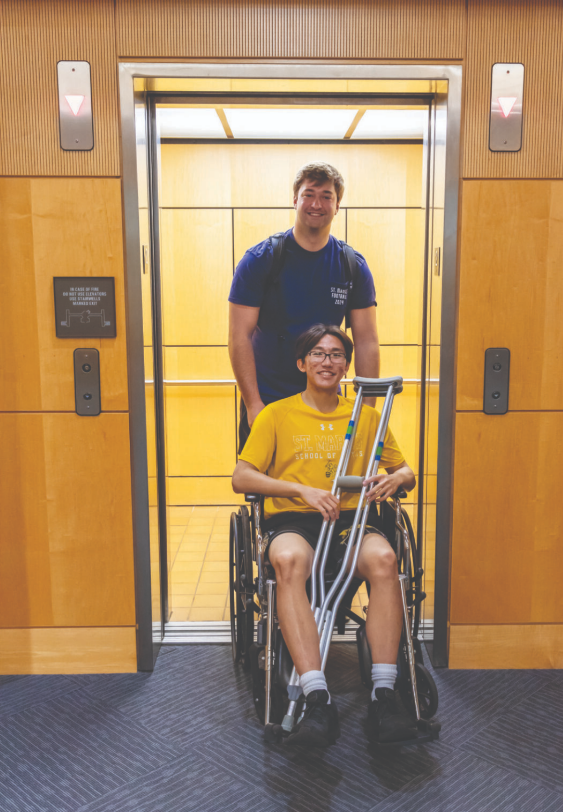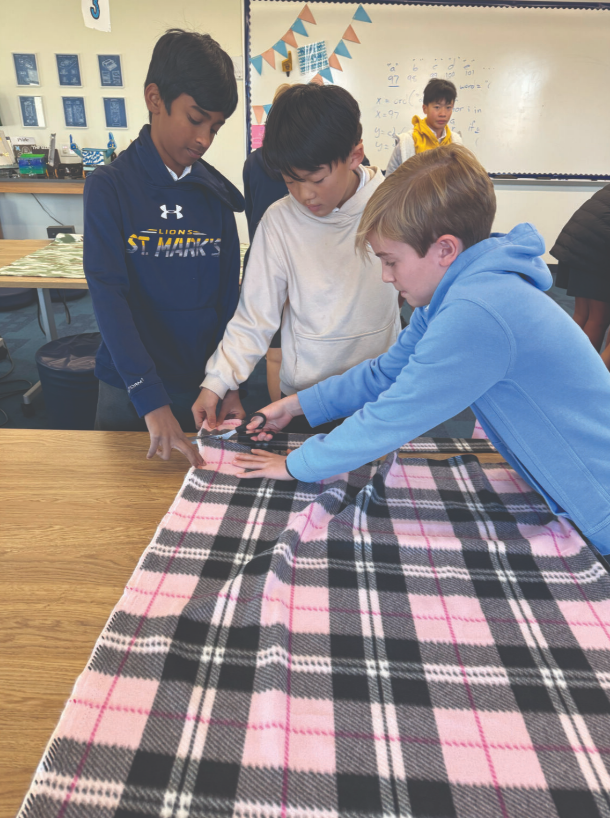
Bright lights. A full crowd. College scouts.
Many people associate those words with sports, but for junior Lukas Palys, they have a different significance.
Yes, Palys is getting recruited, but not for any sport. Instead, he is attempting to pursue opera in college, a path that, in his experience, has been anything but easy.
Through hours of vocal coaching, competition and performance, however, Palys has come to love the art of opera, and he has his sights set on opportunities far beyond high school.
Palys’ opera career began a few years before he joined the school.
“Back in fifth grade, I started choir,” Palys said. “In sixth grade, I joined the Children’s Chorus of Greater Dallas, and I really liked it a lot. They had auditions for the Dallas Opera Children’s Chorus, so I joined that and got a little bit of money there, and that was fun for me.”
In recent years, Palys has faced some adversity while trying to balance his academic and athletic pursuits with his opera career. In fact, he says one of the biggest challenges he faces is the contrast in singing styles between opera and choral performances.
“They are counterintuitive to each other,” Palys said, “because in opera, you’re supposed to stand out and use your voice to resonate louder than the orchestra. In choir, you’re not supposed to stand out or be heard over everyone else. It has definitely been an adjustment in choir, and it’s been hard to find a healthy balance while singing choir.”
In addition to working through his two singing-related commitments, Palys is also an athlete on the volleyball team. He knows that by doing opera, he sacrifices a lot of social and academic opportunities. He has also lost opera time due to school-related obligations. In the end, however, he believes the benefits he gains from opera far outweigh the negatives.
“My voice instructor actually told me last week that I was doing too many things,” Palys said. “He said, ‘You need to stop doing sports because it’s too much for you.’ Even though opera doesn’t seem like it, it is really a whole-body activity. Your voice is your instrument, so you have to take really good care of your voice. If your body is extra tired, it puts strain on your neck and voice muscles.”
Director of Libraries and Information Services and Upper School Choir Director Tinsley Silcox, a long-time musical student and instructor, emphasized the important differences between the various styles of singing employed between choir, opera and musical theater.
“In choral music, your job is to balance and blend,” Silcox said. “You listen to all the people around you. You’re basically singing the same thing at the same time. You don’t want your voice to protrude. You don’t want your vibrato to be different from the person next to you. It’s all about balance and blend. The choir is a unit. That’s exactly the opposite of an opera. You want to be this person in the spotlight on stage, and it’s your distinct voice that gets you there.”
Looking forward to the next few years, Palys is set on continuing his musical studies through higher education. For singers like Palys, there are two options once high school is over: conservatories or normal universities. At a conservatory, singers spend a majority of their time on music-related endeavors.
“For college applications, I’ve been looking at schools with double-degree programs where you can do a dual major or schools with a conservatory on top of a normal college,” Palys said. “And then in the rest of my life, I’m going to see how it plays out. My dream would be if I could be an incredible opera singer and perform at the Metropolitan Opera House, all around Europe and at all those renowned houses, but that’s a really hard road. And once you get there, it’s lucrative and you have a great career, but it’s really, really, really hard to get there.”
Palys says that young opera singers, like young athletes, have to upload clips of auditions and performances online in order to attract attention from prospective colleges.
“Almost in the same way that athletes have Twitter accounts where they post their highlights,” Palys said, “there’s actually a website for high school singers where they post their resume and videos of them singing. They reach out to schools that they’re interested in. Through that website, I’ve been able to broadcast myself almost or advertise myself on these to these colleges. And if the colleges are interested in you, they will respond.”
Before he entered his current role, Silcox taught at SMU. His familiarity with collegiate music study has helped him guide students like Palys through the process of finding a suitable college to continue studying music.
“If you go to one of these national competitions sponsored by a group like NATS, (the National Association of Teachers of Singing) they’re going to be college voice teachers either judging or just observing so that they can snag the best students,” Silcox said.
Palys says that despite the difficulty levels of schoolwork and athletics, opera is the hardest endeavor he has ever undertaken in his life.
“Opera is one of those things where I can try extremely hard and I just still fall short of what I’m trying to get,” Palys said. “So it really pushes me mentally to succeed in opera and to try and become a better singer. And the payoff when I perform is just unmatched – it’s better than anything else that I’ve ever done. It’s just a feeling of euphoria when you’re on the stage and the lights hit you and you are singing and acting. It’s just a moment of bliss when you’re not connected to anything else in your life except for when you’re singing. I love that.”





